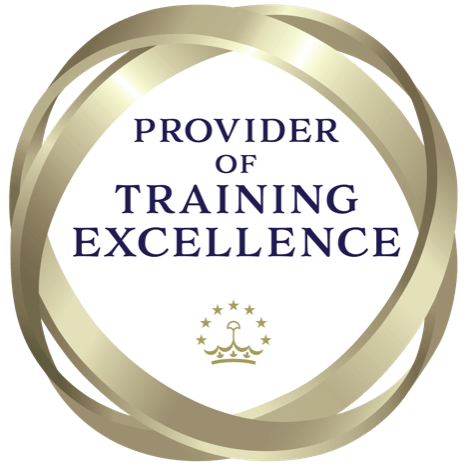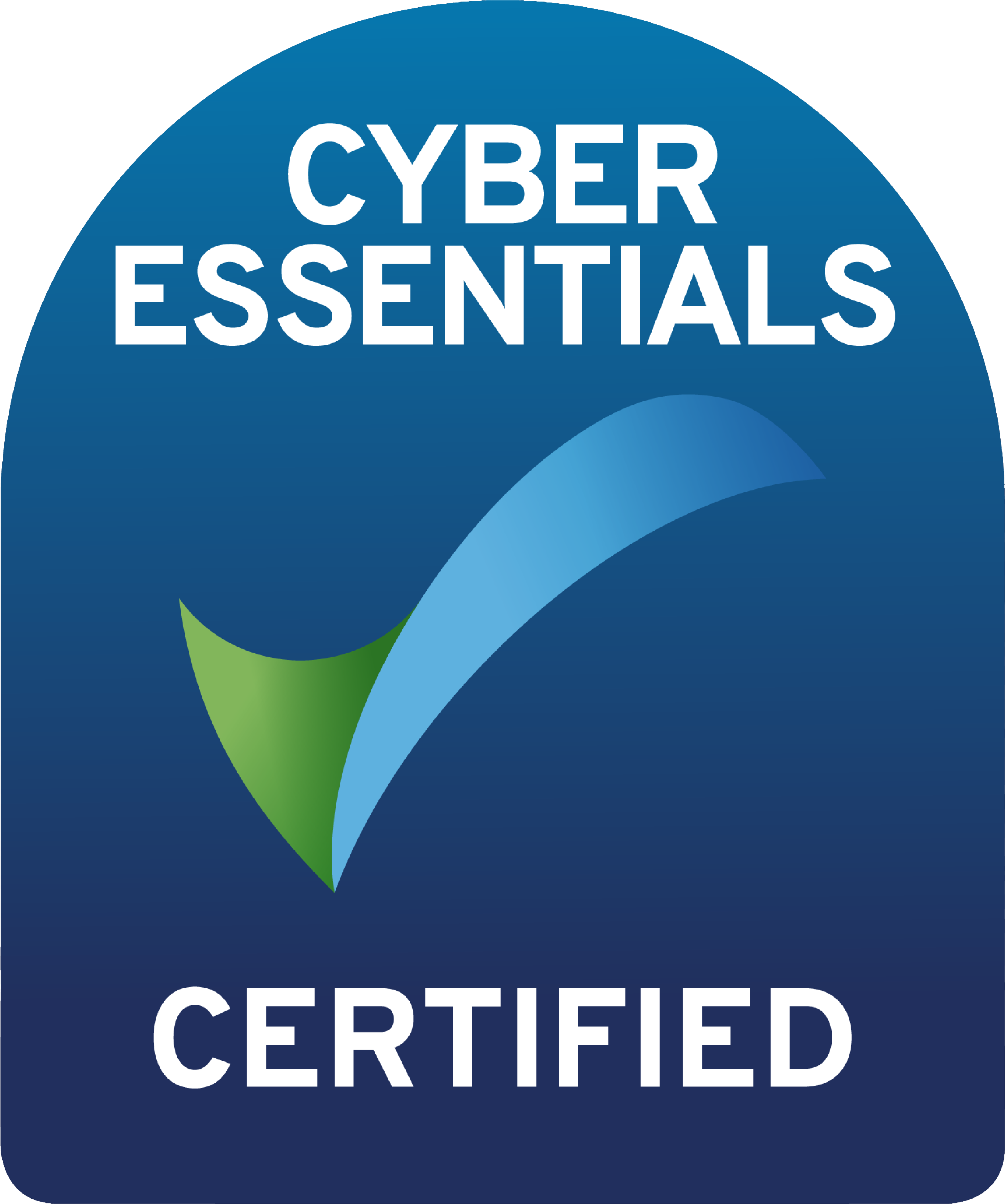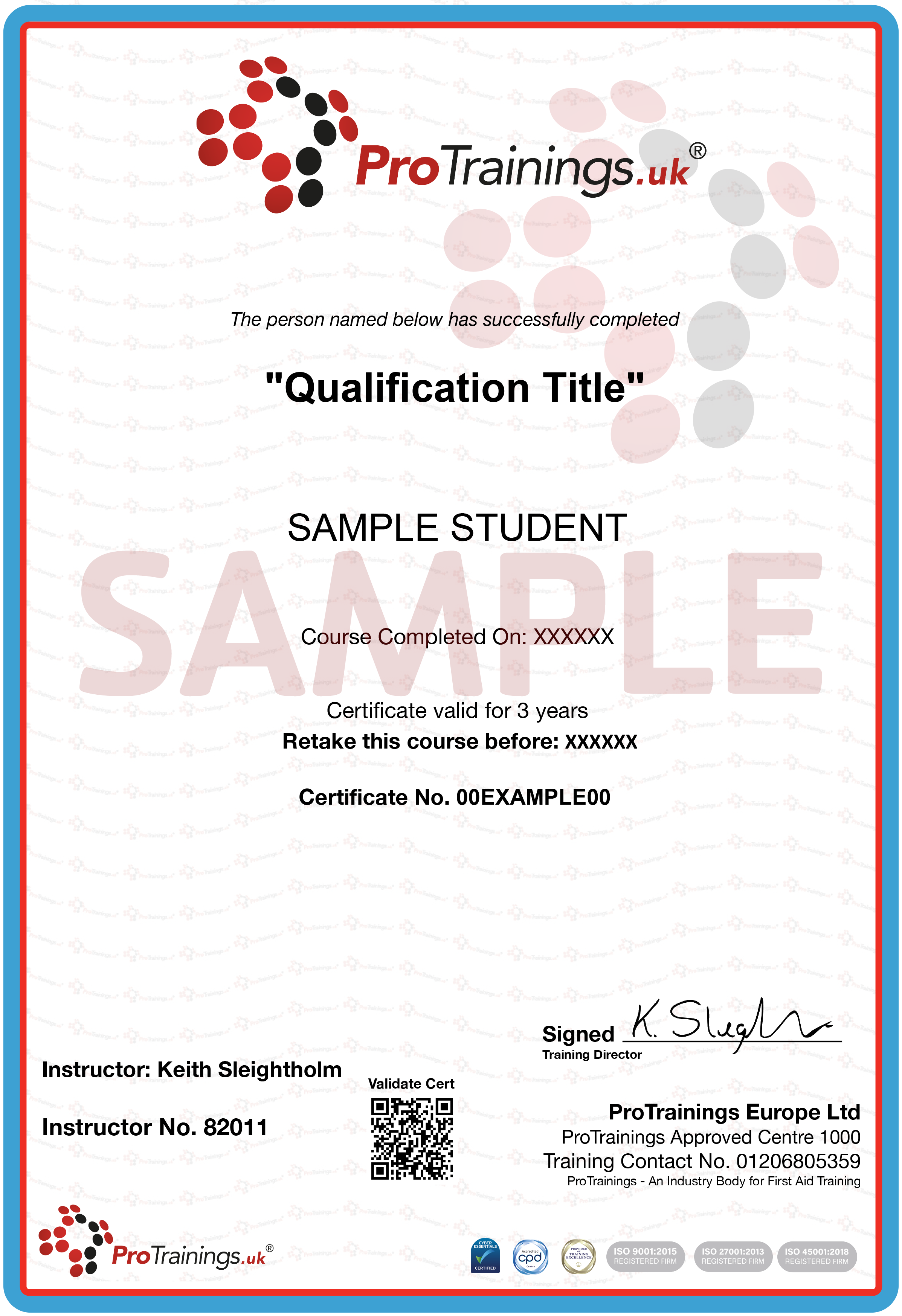


This course is designed for entry-level new amateur boxing coaches, at England Boxing Coach Level 1 (i.e. those who assist a Level 2 coach) and also is suitable for Level 2 Boxing coaches, who are regulated and registered and qualified with an England Boxing club and who require a first aid qualification.
The course is designed for boxing coaches teaching boxing in a community setting to young adults and children. Coaches need knowledge of appropriate first aid in such settings and with such a client group.
The content of this and all our courses has been independently certified as conforming to universally accepted Continuous Professional Development (CPD) guidelines and come with a Certified CPD Statement as well as a ProTrainings Certificate and for online courses an Evidence Based Learning statement.
- Boxing coaches
|
Understand basic life support requirements |
LO1 |
|
Describe the principles that underpin basic life support |
1.1 |
|
Explain the circumstances under which resuscitation is performed |
1.2 |
|
Explain why early intervention is necessary |
1.3 |
|
Describe different types of cardiopulmonary arrest |
1.4 |
|
Be able to demonstrate basic life support techniques and automated external defibrillator use in line with current national guidelines |
LO2 |
|
Demonstrate cardiopulmonary resuscitation |
2.1 |
|
Demonstrate compression-only resuscitation |
2.2 |
|
Demonstrate the use of resuscitation barrier devices |
2.3 |
|
Demonstrate the use of an automated external defibrillator |
2.4 |
|
Describe the differences when using an automated external defibrillator on a child |
2.5 |
|
Be able to demonstrate post-resuscitation procedures |
LO3 |
|
Demonstrate how to place a casualty in the recovery position |
3.1 |
|
Identify the risks when placing a casualty in the recovery position |
3.2 |
|
Describe handover and reporting procedures |
3.3 |
|
Be able to carry out basic user maintenance and troubleshoot problems with an automated external defibrillator |
LO4 |
|
Identify when a defibrillator battery requires changing |
4.1 |
|
Identify when electrode pads need replacing |
4.2 |
|
Demonstrate how to troubleshoot problems if the automated external defibrillator does not function correctly |
4.3 |
|
Understand the safe use of an automated external defibrillator |
LO5 |
|
Describe the safety considerations when using AED’s |
5.1 |
|
Be able to provide first aid for an adult and a child who is choking |
LO6 |
|
Identify when choking is: · mild · severe |
6.1 |
|
Demonstrate how to administer first aid to an adult and a child who is choking |
6.2 |
|
Be able to provide first aid to an adult and a child with external bleeding |
LO7 |
|
Identify the severity of external bleeding for an adult and a child |
7.1 |
|
Demonstrate how to administer first aid to an adult or a child with external bleeding |
7.2 |
|
Know how to provide first aid to an adult or a child who is suffering from shock |
LO8 |
|
Recognise when an adult or a child is suffering from shock |
8.1 |
|
Identify how to administer first aid to an adult or a child who is suffering from shock |
8.2 |
|
Be able to provide first aid to an adult or a child with suspected injuries to bones, muscles and joints |
LO9 |
|
Recognise a suspected: Fracture or dislocation & sprain or strain |
9.1 |
|
Identify how to administer first aid for an adult or a child with a suspected: Fracture or dislocation & sprain or strain |
9.2 |
|
Demonstrate how to apply: A support sling & an elevated sling |
9.3 |
|
Be able to provide first aid to an adult or a child with suspected head and spinal injuries |
LO10 |
|
Recognise a suspected: Head injury & spinal injury |
10.1 |
|
Identify how to administer first aid for an adult or a child with a suspected head injury |
10.2 |
|
Demonstrate how to administer first aid for an adult or a child with a suspected spinal injury |
10.3 |
|
Know how to provide first aid to an adult or a child with an acute medical condition or sudden illness |
LO11 |
|
Recognise suspected: Diabetic emergency, Asthma attack, Allergic reaction, Meningitis & Febrile convulsions |
11.1 |
|
Identify how to administer first aid for an adult or a child who is suspected to be suffering from: Diabetic emergency, Asthma attack, Allergic reaction, Meningitis & Febrile convulsions |
11.2 |
|
Be able to provide first aid to an adult or a child with anaphylaxis |
LO12 |
|
Recognise suspected anaphylaxis in an adult or a child |
12.1 |
|
Identify how to administer first aid for an adult or a child with suspected anaphylaxis |
12.2 |
|
Demonstrate the use of a ‘training device’ adrenaline auto-injector |
12.3 |
- Student Manual (V9.0) - First Aid Plus
- 5 Step Process of Using WoundClot Hemostatic Gauze
- Adult CPR Flowchart
- Adult CPR Flowchart handout/poster
- Be Allergy Aware Save-a-Life leaflet
- Catastrophic bleeding and trauma First Aid Guidance From ProTrainings.
- Child CPR Flowchart handout/poster
- Clean hand techniques leaflet
- EURneffy® nasal spray for anaphylaxis leaflet
- EURneffy® nasal spray instruction leaflet
- EpiPen Guide
- EpiPen patient information sheet
- Find out what other courses are available as video online, blended and classroom courses nationally - our course finder
- Free student first aid program leaflet
- Government Advice - Best Practice Hand Rub
- Government Advice - Best Practice Hand Wash
- Home Emergency Contact Sheet
- How to register to call EMS by text
- Infant CPR Flowchart handout/poster
- Jext Product Data Sheets
- Jext patient Information Sheet
- Oxygen User Instructions - Gas rentals are available from ProTrainings, contact us for more information
- Oxygen and Analgesic gases from ProTrainings
- ProTrainings - Using an AED Leaflet
- ProTrainings Defibrillator eGuide
- Proper CPR Hand Placement for Adults Children Infants leaflet
- Sign up for free Student First Aid - use code SCH-376-61-571
- Student Manual (V7.0) - First Aid - Arabic
- Student Manual (V7.0) - First Aid - Spanish
- Student Manual (V8.3) - Pierwsza Pomoc w Pracy Ksiazka studenta - Polish
- Student Manual (V8.6) - Anatomy and Physiology Human Body
- Student Manual (V8.6) - First Aid - Welsh
- Student Manual V8.6 - First Aid - Dutch
- Student Manual V8.6 - First Aid - Portuguese
- Student manual V8.6 - First Aid - French
- Student manual V8.6 - First Aid - Ukrainian
- Student manual V8.6 - First Aid Manual Italian
- Visit the First Aid Show free for first aid and medical videos
- Workplace Accident Book
- Workplace Emergency Contact Sheet
- Woundclot - haemostatic gauze for all types of bleeding
- Woundclot leaflet with price list - 2025
What is CPD and why is having Certified CPD important?
CPD stands for Continuous Professional Development and is required in many business sectors. Even if you do not require a set CPD credit level, having Certifed CPD ensures the quality of training. ProTrainings are the highest gold standard of CPD ensuring that all courses are externally verified and mapped to the highest levels.
What is "SCORM ready" and will courses run on a LMS?
SCORM Ready means that online courses can run on any compatible Learning Management System (LMS). SCORM courses run seamlessly on your existing LMS system without a separate login so staff only login using the existing company system. ProTrainings online courses have an advanced SCORM ready system to give more features than any other company.
Do I receive a certificate after completing your online training?
Yes, when you complete the online course you will be able to download and print a compliant completion certificate, evidenced-based learning statement to confirm course content and a certified CPD statement. There is no extra charge for the certificate. You can also buy a printed certificate to be posted to you for a small extra fee.
What training courses do you offer and how are they delivered?
We offer a full range of training courses across all business sectors as video online, blended and nationwide at your business or our local training centres. With over 350 courses you can learn at a time and place that meets your busy schedules and save money on travel and costs away from the office.
Are your courses Endorsed?
Yes, all ProTrainings courses are Endorsed by TQUK in addition to other approvals and endorsements to give you a quality compliant qualification for your courses whatever delivery method you take.
Why do I need accredited training courses?
Whether you are employed, running a business or taking training for other reasons, you need to ensure the course is trustworthy and will pass due diligence checks. Taking courses that are accredited gives you peace of mind of the quality, compliance and that your certificate will be accepted. Choosing ISO companies to ensure they are externally verified.
Are courses all online or can I take a blended or class course locally?
Most of our courses are available as online or classroom-based at a training centre locally. We can also send an instructor to your business to save travel and tailor the course to your business. To save time and money you can take most courses in a blended format with online and class training.


